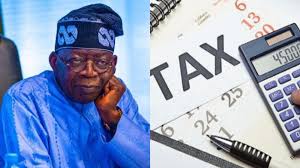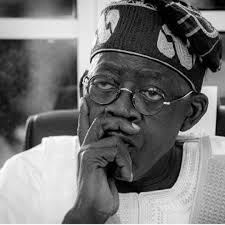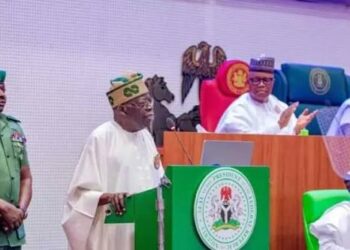Fitch has downgraded Nigeria’s sovereign credit rating, a move that will frustrate the country’s plan to raise $1 billion at the international debt market this year.
With the downgrade, investors will demand higher risk premiums, even as they weigh in on the growing attraction to developed market assets.
Fitch ratings revised the Outlook on Nigeria’s Long-Term Foreign and Local Currency Issuer Default Ratings (IDRs) to negative from Stable and affirmed the IDRs at ‘B+’, on Jan. 25.
The ratings agency noted that access to foreign exchange would remain severely restricted until the Central Bank of Nigeria (CBN) can establish the credibility of the Interbank Foreign Exchange Market (IFEM) and bring down the spread between the official rate and the parallel market rates.
A credit downgrade is bad news for Nigeria, pressed for borrowed cash to implement its 2017 expansionary budget, amid weak economic fundamentals. The country plans to raise a total N1.8 trillion externally this year.
Despite the poor performance of the 2016 budget, the proposed 2017 budget still assumes optimistic revenue and borrowing targets to finance an even more ambitious expenditure plan aimed at increasing spending by 20.4 percent to N7.3tn.
The budget comprises Capital Expenditure (proposed to grow by 41.1 percent from N1.6 trillion in 2016 to N2.2 trillion and Non-Debt Recurrent spending of N2.6 trillion, up 8.7 percent from 2016 budget.
Debt service will also grow 8.7 percent to N1.7 trillion as a consequence of increasing debt obligations and will take up 23 percent and 33.6 percent of gross expenditure and revenue respectively.
The Fitch downgrade is likely to fan external debt service costs for government, already choked by high domestic borrowing costs in the range of 14 to 18 percent.
“The rating is negative for the proposed $1 billion Eurobond to be floated this year and larger plans to raise cash at the international debt market,” said Tajudeen Ibrahim, head of research at investment bank, Chapel Hill Denham by phone.
“The foreign exchange conundrum is a problem but the Vice President said they were working on a solution which is a positive signal. We may have an announcement any moment to allow for a true float,” Ibrahim said.
The yields on Nigeria’s outstanding Eurobonds with maturities in 2018, 2021 and 2023 stood at 3.81 percent, 5.89 percent and 6.55 percent respectively as at January 24, according to the Debt Management Office (DMO).
The Fitch downgrade is likely to jerk up the yields on the outstanding Eurobonds, which are each half the size of the planned $1 billion, at $500 million.
“Yields are likely to trend upwards as investors price in the risk of the credit downgrade by Fitch,” said Tiffany Odugwe, a research analyst at investment bank, Cardinal Stone Partners.
However, a speedy budget passage and improved oil production could lead to a credit rating reversal in the second quarter of the year, according to Chapel Hill’s Ibrahim and Cardinal Stone’s Odugwe.
Nigeria paid a total of $91.2 million to investors as at when due in 2015, servicing its three outstanding Eurobonds, $500 million each, maturing in 2018, 2021 and 2023.
Each of the aforementioned Eurobond issuances gulped $25.6 million, $33.7 million and $31.8 million respectively in bi-annual payments made in the first and fourth quarters of 2015.
In the first half of 2016, there was a decline in sovereign bond issuances by 50.58 percent (year-on-year), as only South Africa ($1.25 billion) and Mozambique ($726.5 million) raised international bonds (Eurobonds), as against four issuances totalling $4 billion in the first six months of 2015.
Only Ghana joined the pack in the course of the second half of 2016, selling $750 million worth of debt on September 8. The Eurobond was more than four times oversubscribed, rendering an optimistic outlook for Nigeria’s outing in 2017.
Egypt is also eyeing as much as $6 billion from international bond sales this year, though the first issuance may be delayed due to market volatility after the election of Donald Trump, Finance Minister Amr El-Garhy said.
Vice President Yemi Osinbajo, who chairs the country’s economic management team, disclosed last year that Nigeria’s proposed Eurobond would be delayed till the first quarter of 2017 and that the country was working to make its foreign exchange market more flexible.
Osinbajo’s comment spurred sentiments among traders of naira depreciation at the official market, given that the big devaluation in June came four weeks after the Vice President told investors in a conference, on May 11, that changes were being made to the Foreign exchange market structure to boost its supply side.
However, nothing has changed except that investor confidence in the foreign exchange market has weakened, pushing the spread between the official and parallel market to an all-time high of N180
The spot rate for the naira has hovered at a range of NGN305 to NGN315 per USD in the official market, while the parallel market rate is at N490 to the US$, as authorities defend the naira at all costs.
“I have never seen how a government doggedly tries to manage an exchange rate system that it clearly doesn’t have the ability to,” said Manji Cheto, a policy risk analyst and senior vice president with global advisory firm, Teneo Intelligence.
“I don’t think devaluation is the right strategy anymore, Nigeria needs a flexible exchange rate where there is a market-determined naira/dollar exchange rate in order to boost autonomous capital inflow, with CBN intervention only at highly volatile times,” Cheto told BusinessDay.













